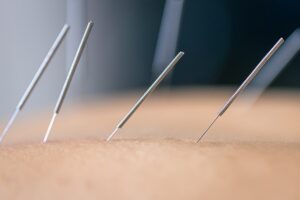
Poor sleep quality severely affects the lives of people with Parkinson’s disease and speeds up their condition’s progression. Unfortunately, current treatments for sleep issues in Parkinson’s patients are limited. Acupuncture, when used along with anti-Parkinson medications, has shown some positive effects. However, there isn’t enough high-quality clinical evidence to prove its effectiveness for patients with Parkinson’s and poor sleep.
Parkinson’s disease is a brain disorder that worsens over time, leading to reduced neural responses in parts of the brain like the supplementary motor area, putamen, and thalamus. Earlier studies indicated that acupuncture could help improve motor dysfunction in these patients.
The goal of this new study was to evaluate the safety and effectiveness of real acupuncture (RA) compared to sham acupuncture (SA) as an additional treatment for Parkinson’s patients with sleep problems.
The study was a single-center randomized clinical trial conducted at The First Affiliated Hospital of Guangzhou University of Chinese Medicine in China from February 18, 2022, to February 18, 2023. The data analysis took place from April 12 to August 17, 2023.
Mingyue Yan, Ph.D., is from China’s First Clinical College at Guangzhou University of Chinese Medicine. She and her team randomly assigned 78 patients with Parkinson’s and poor sleep to either real or sham acupuncture for four weeks. They found that both groups significantly increased their Parkinson’s Disease Sleep Scale (PDSS) scores from the start.
However, after four weeks of treatment, the real acupuncture group had a more substantial improvement in PDSS scores compared to the sham group, and this improvement lasted up to eight weeks. Neither group had severe side effects, and any moderate side effects were well managed.
The study’s authors noted that acupuncture improved both sleep quality and overall life quality for Parkinson’s patients in the trial, with the benefits lasting up to four weeks. They highlighted the potential of acupuncture as a helpful additional treatment for sleep-related issues in Parkinson’s patients. They also suggested that future research should include diverse participant samples to make sure the results apply to a broader population of Parkinson’s patients.